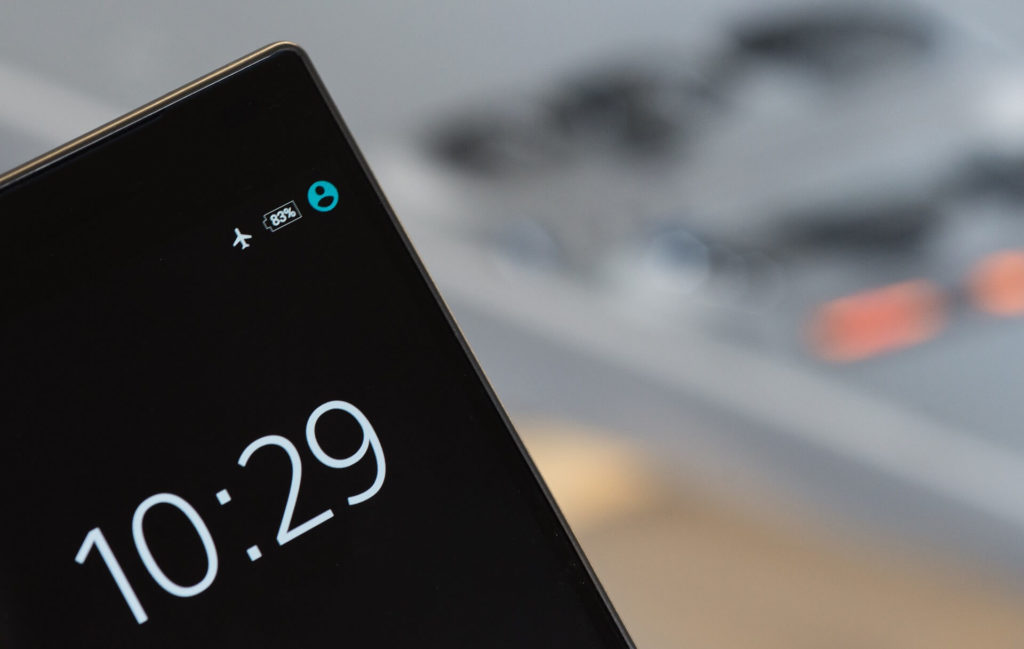March 11, 2019

Let’s face it–you fully know that you are supposed to keep your phone in airplane mode in flight. However, when the plane hits the skies, and the flight attendant looks away and embarks on other duties, you are tempted to quickly switch on your phone to make one last quick call, upload a photo on social media, or send a goodbye message to your loved ones.
Sometimes, you will alight from your flight upon arriving at your final destination, only to realize that you did not switch off the gadget.
Often, we hear that a flight has been delayed, or we have seen chaos in an airport because a passenger or two did not switch off their phones or tablets. But look–even though millions of these gadgets take to the skies every day, there has never been a plane crash whose cause has been conclusively attributed to them.
In 1992, the Federal Aviation Administration requested an independent industry standards organization known as RTCA (Radio Technical Commission for Aeronautics) to study the effects of electronic devices on airplanes. This organization did not find any interference whatsoever, and consequently, FAA recommended that airlines allow their passengers to use gaming devices, music players, and laptops while on board. However, these devices were still not permitted during landing and takeoff.
In the 1990s, Boeing investigated a few cases and concluded that using some electronic devices leads to instrument display malfunctions and autopilot disconnects. This giant aircraft manufacturer could not prove or replicate these allegations in a laboratory test.
Wireless devices such as cell phones release active transmissions into the electromagnetic spectrum used by some gadgets, including Wi-Fi networks, radio, and mobile phones. This spectrum is divided into different chunks. Studies have found that using cell phones to make a call on board should not and cannot interfere with bands reserved for GPS navigation systems and aircraft communications.
Therefore, the notion that cell phones radiate energy that could interfere with aeronautical systems is a concern rather than a fact. The Federal Communications Commission (FCC) banned the in-flight use of wireless devices because of the fear it could interfere with ground networks, not because it posed any adverse effects on aircraft systems.
In 2007, the FCC lifted the ban on the inflight use of electronic devices. However, the commission kept the rules, citing a lack of enough evidence that these devices didn’t interfere with ground networks. Despite this, many airlines across the globe allow their passengers to use their cell phones in Airplane Mode.
An airplane mode is a function that switches off all wireless functions in a smartphone. When the setting is turned on, this mode turns off the data connection, Bluetooth, Wi-Fi, and cellular voice connection.
It is called airplane mode because it was specially designed to make smartphones safe for use during flights.
When you turn off Wi-Fi and cellular service, your device becomes safe for use during a flight. Therefore, this mode enables you to conform to the rules set by the Federal Communications Commission and other airline regulations.
Also, you can use airplane mode even when you are not near an airport. It can help you save battery power, especially if you are in a remote place where an electrical connection is poor, and can also help you focus on something with little or no interruptions.
Of course, you will not be able to make voice calls and send texts in airplane mode. Also, you will not be able to do anything that requires an internet connection. However, FCC revised its guidelines in 2013, allowing passengers to use Wi-Fi and Bluetooth in-flight.
In this mode, you can listen to music and watch videos saved on your phone. Per the revised guidelines, you can connect to in-flight Wi-Fi and access the internet on air.
The use of cell phones during flights remains a thorny issue, with some passengers doing everything they can to break the rules. Some reports show one to four calls are made on flights every day. On the bright side, this ban can comfort you, knowing that you will not have to contend with yammering by passengers on personal calls. According to the FAA, most travelers prefer silence throughout their flight.

We accept phones that are re-financed or not paid off as long as they are not blacklisted.
Sell My Device
We accept devices in a variety of conditions, including damaged or even broken devices.
Sell My Device
5855 W Silver Spring Dr. Milwaukee WI 53218

(877) 835-1941
Business Hours
Monday to Friday - 9am to 9pm
Closed on Saturday, Sunday

North Oak Shopping Center 6810 W. North Ave Chicago, IL 60707

(773) 413-7087
Business Hours
Monday to Friday - 10am to 6pm
Closed on Saturday, Sunday

info@swifttechbuy.com